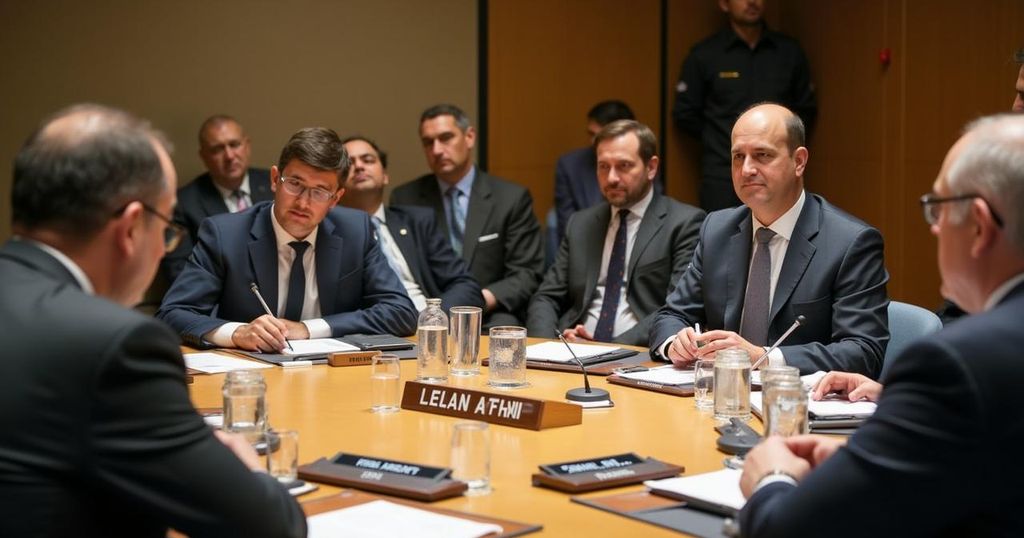On October 10, 2024, heated arguments erupted at the UNSC between Israeli envoy Danny Danon and Iranian envoy Amir Saeed Iravani regarding Iranian influence in Lebanon. Danon called for the expulsion of Iranian forces while Iravani condemned Israel as a terrorist entity. This faceoff highlights ongoing tensions in Middle Eastern geopolitics.
A heated exchange occurred between the representatives of Israel and Iran at the United Nations Security Council (UNSC) on October 10, 2024. The discourse centered on the presence of Iranian forces in Lebanon and their implications for regional security. Israeli envoy Danny Danon urged Lebanon to expel Iranian influences from its territory, arguing that such actions are essential for restoring peace and stability in the region. Countering this claim, Iranian envoy Amir Saeed Iravani labeled Israel as “the world’s most notorious terrorist organization,” highlighting the tension and hostilities characteristic of this ongoing regional conflict. This confrontation underscores the increasing volatility in the Middle East, particularly regarding the role of external actors in Lebanese affairs.
The confrontation at the UNSC reflects the long-standing geopolitical tensions between Israel and Iran, particularly concerning Iran’s military presence in Lebanon through its support for Hezbollah. The Israeli government has been proactive in international fora, seeking to rally support against Iranian influence, which it perceives as destabilizing not only to Israel but to the broader Middle Eastern region. The backdrop of this encounter involves a series of military operations and diplomatic efforts aimed at curtailing Iranian hegemony and addressing security threats perceived by Israel. As both nations position themselves on the global stage, the UNSC serves as a crucial platform for articulating their respective narratives and garnering international support.
The exchange at the United Nations Security Council between Israeli and Iranian representatives not only highlights the deep-seated animosity between the two nations but also illustrates the complexity of the Middle Eastern geopolitical landscape. The conflicting perspectives on Iranian presence in Lebanon continue to evoke strong responses, encapsulating a broader narrative of warfare, terrorism, and regional stability. As discussions at international forums like the UNSC unfold, the implications for peace efforts in the region remain significant, demanding concerted diplomatic approaches to navigate the entrenched divides.
Original Source: www.hindustantimes.com






